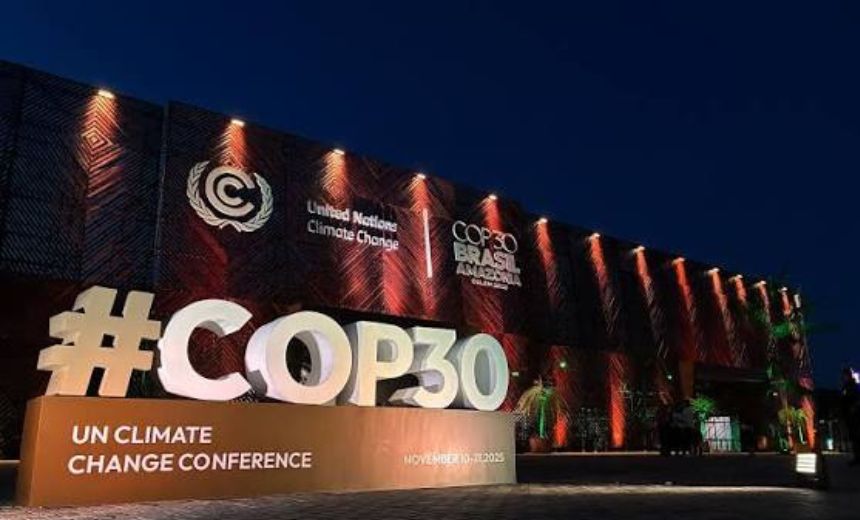There is growing public backlash over Nigeria’s 420-member delegation to this year’s United Nations Climate Conference, COP30, holding in Brazil.
Critics say the delegation is excessively large at a time when the country faces severe economic strain. But the Federal Government is defending its decision, insisting the team is a mix of government officials, technical experts, youth representatives, and private-sector partners — and that not all members are funded by taxpayers.
The 2025 United Nations Climate Change Conference, or Conference of the Parties of the UNFCCC, more commonly known as COP30, is the 30th United Nations Climate Change Conference, being held in the Amazon city of Belém.
COP30’s overarching theme is action and implementation, with a specific focus on adapting to climate change, supporting the Sustainable Development Goals, SDGs, and accelerating the transition to a low-carbon economy.
Nigeria is at the forefront pushing for key themes including climate justice, resilience, sustainable financing, health, and forests, oceans, and biodiversity.
But Nigeria is also in the news at COP 30 for a different reason: its 420 delegates at COP30, has ignited a storm on social media and among policy watchers.
Many are wondering why Nigeria, which is currently battling inflation, high living costs, and currency pressure – would send one of the biggest national contingents. In fact, it is believed to be the third largest at the event.
But the government insists the criticism is misplaced. In a statement, officials explained that the delegation includes federal and state representatives, climate negotiators, environmental scientists, private-sector investors, and NGOs.
According to the government, only a fraction are sponsored with public funds, while the rest are funded by development partners or their own organisations.
According to government, a climate summit is not tourism. Nigeria needs experts at the negotiation table to secure climate finance, technology transfers, and adaptation support. We are sending a team capable of defending the country’s interests.”
Nigeria has been pushing for increased access to climate financing, particularly for renewable-energy projects, adaptation funds, and compensation for loss and damage.
Officials argue that robust representation helps the country participate meaningfully in high-level negotiations that shape global climate policy.
Still, critics say the communication came too late, and that the optics of a large delegation remain problematic for a nation urging citizens to “tighten belts”.
Some climate advocates believe the controversy could overshadow Nigeria’s policy priorities at COP30 – unless the government offers clearer accounting of the delegation’s role and funding.
For now, the Presidency maintains that the benefits of strong representation outweigh the concerns. But with Nigerians closely watching government spending, the delegation’s performance at COP30 may ultimately determine whether the trip is seen as investment – or indulgence.
(Editor: Terverr Tyav)








